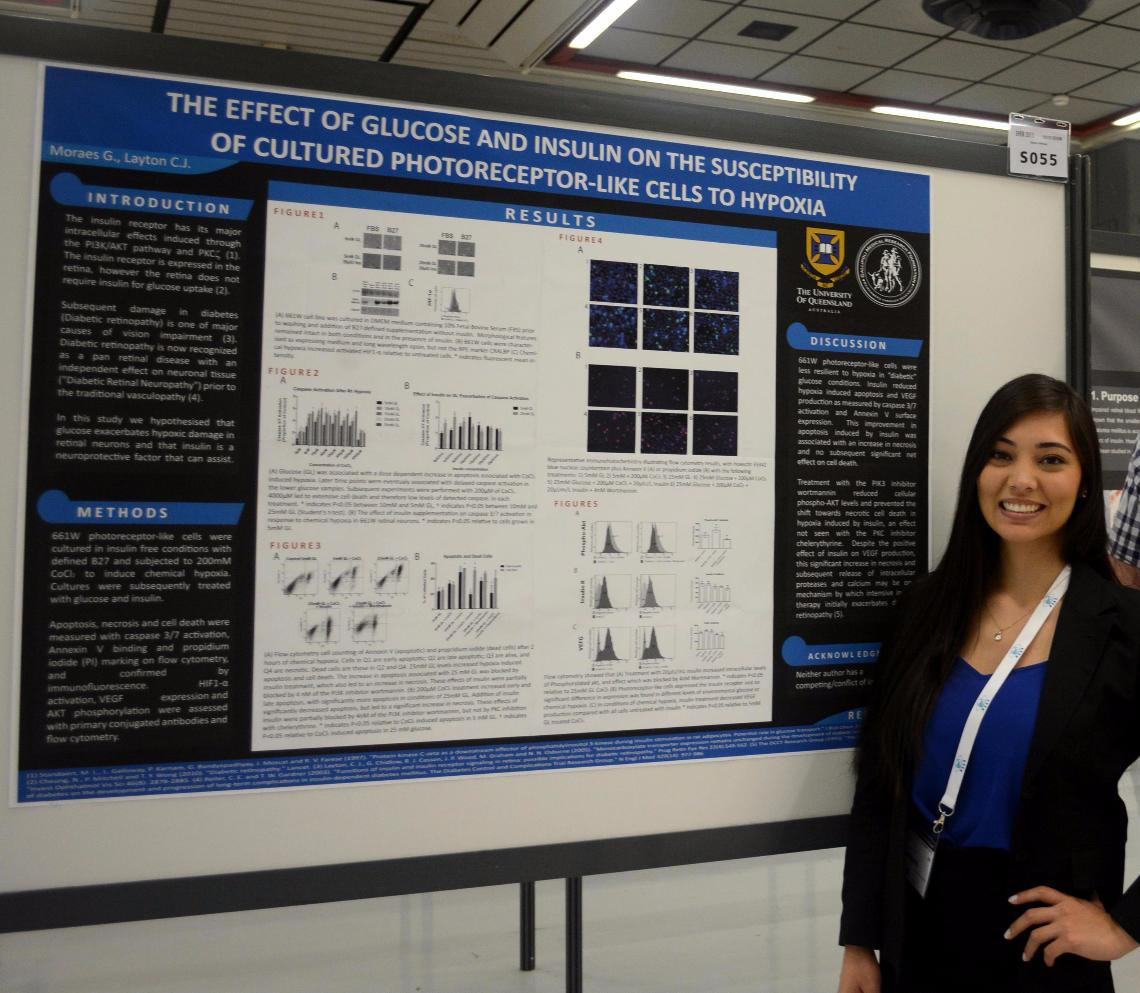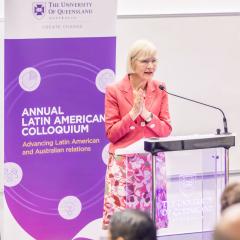
Brazilian medical student Gabriela de Moraes recently won best poster for her research into diabetic blindness at a major European conference, despite having no laboratory research experience before her study abroad year at The University of Queensland.
The research poster she presented at The European Association for Vision and Eye Research (EVER) Congress in France last month examined diabetic retinopathy, the leading cause of blindness in people aged 30-69 years.
Ms de Moraes conducted the research at the Gallipoli Medical Research Foundation, of which UQ is a key partner, with Dr Christopher Layton, a Brisbane ophthalmologist and medical retina specialist working with the Faculty of Medicine and Biomedical Sciences.
“It was incredible to represent my institutions among the best quality eye research groups of the world and receive a prize for our work,” she said.
“At present, there is no effective treatment to reverse the vision impairment caused by diabetic retinopathy, which is a complication of diabetes that damages the light-sensitive blood cells inside the retina that enable us to see.”
The project examined whether insulin applied directly to the eye could prevent this cell damage.
While the approach prevented some cells from slowly degenerating, the researchers found it led to ‘sudden death’ of other light-sensitive cells, possibly showing how re-establishing sugar control can worsen the condition.
The 500 euro prize money has been donated to the Foundation to enable further research.
Ms de Moraes is studying at UQ as part of the Brazilian Government’s Science without Borders scholarship program, which aims to build capacity in science, health, technology and engineering.
“I chose to study at UQ as it is one of the best universities in the world in my field of study and a leading research institution that embraces cultural diversity and offers great student support,” she said.
“The opportunity to present at an international conference grew out of a research internship I undertook with Dr Christopher Layton’s laboratory, where I got practical experience in a laboratory and learned more about the philosophy of science.”
“Dr Layton and I have now published an abstract in an international scientific journal and we look forward to publishing further articles on our laboratory findings.”
Ms de Moraes, who studies medicine at the Faculdade de Medicina de Marília in Brazil, says she will go home with a new sense of confidence and continue her research endeavours as a doctor in the future.
“I will return to my country as a better person and future professional,” she said.
“By doing research I hope I can contribute in a small way to help people’s lives.”
“What I definitely know is that my experience in Australia and at UQ has changed me forever and will always remain as one of the most important parts of me.”
The UQ Global Engagement office manages a range of services for international sponsor agencies and scholarship recipients, from point of application through to student graduation and beyond. To find out more about UQ’s international scholarships programs or global partnerships, visit www.uq.edu.au/international/global-engagement.
Dr Layton would like to emphasise that good control of blood sugar levels in diabetes remains the best means of avoiding diabetic blindness.
Media: Dr Christopher Layton, c.layton@uq.edu.au, +61 7 3394 7284 or Melanie Martin,melanie.martin@uq.edu.au, +61 7 3346 0665



